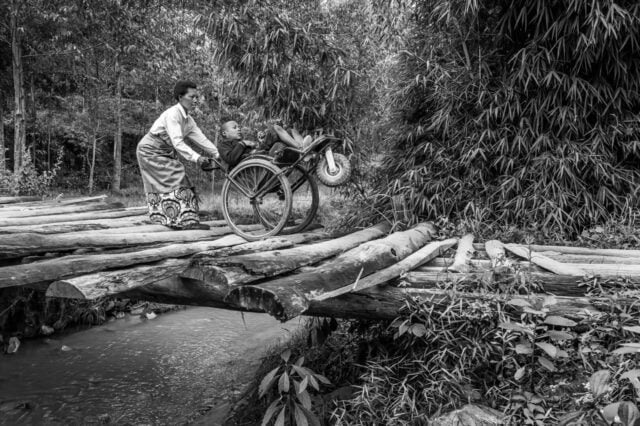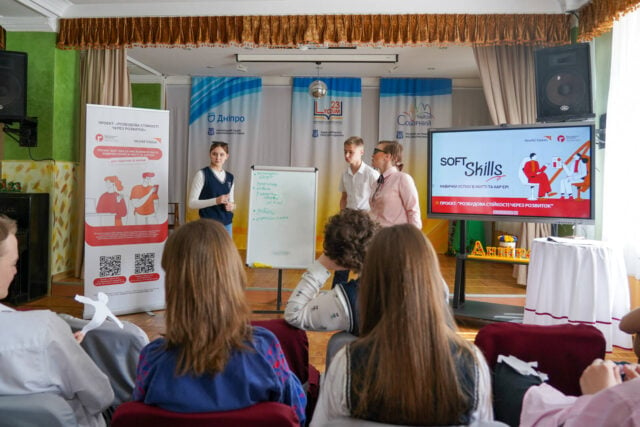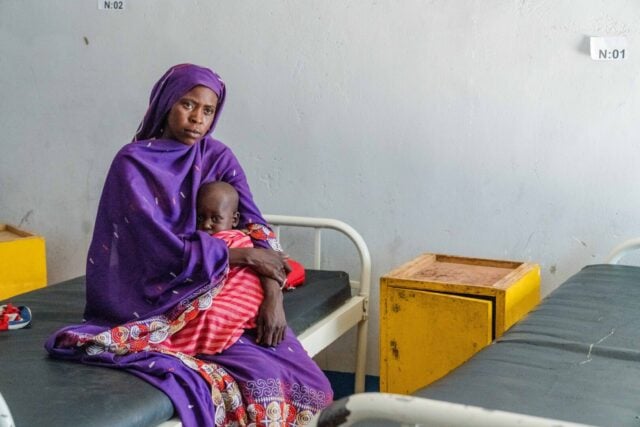As a child, school and learning greatly challenged Giduma Nemera. “I struggled in reading,” the 16-year-old says. “Unlike my brothers, I started reading late. It was a struggle to catch up with my [peers].” But through a lot of hard work, he rose to first rank in his class.
The first-born child of five, Giduma grew up in Nono, Ethiopia, about 75 miles outside of the capital city of Addis Ababa. Only 39% of Ethiopians are able to read, which makes learning difficult for children like him. Without the ability to read, it’s difficult for kids to grow up and pursue jobs that can bring them out of poverty.
Seeing a need to improve literacy rates, World Vision helped start Reading Buddies, a program that works in conjunction with its Literacy Boost project, which aims to improve reading rates across Africa.
Through Reading Buddies, World Vision selected older children who have good reading and writing skills from each household. Then staff trained those kids on how to read with and teach their younger siblings. The program, in conjunction with reading camps for the children, hopes to improve literacy rates.
Giduma was one of the students trained to support his brothers and sisters. Knowing his own struggles to learn, he was eager to help. He says, “I was very happy when I was chosen as a reading buddy. Using various books that are provided by World Vision Ethiopia, I am helping my siblings [learn] how to read and write and taking out questions. From that, I encourage them to remember each and every letter and word.”
Giduma and his siblings have a reading schedule every day after school and on the weekends. His 14-year-old brother, Wakuma, is a grade four student benefitting from the program.
“Identifying letters and reading was very difficult for me,” Wakuma says. “I could not read until I finished grade two. Because of this, I used to answer exams by guessing.”
Through the program, Wakuma is learning to read as well as Giduma.
“Studying with our brother at home has helped us to practice and improve our reading skill more,” Wakuma says. “We ask him anything we want without any fear.”
Through this learning process, Wakuma is improving in school.
“My rank in the class was very bad before,” he says. “Now I got fourth rank in our class. … I want to take the first rank next year.”
Giduma’s other younger brother, 10-year-old Diriba, has also been participating. Through the books he’s reading, Diriba says he’s learned good values like honesty and integrity. Additionally, his school performance has also improved. He says, “I read stories for my [peers]. This year, I got the third rank in the class.”
More than 74 reading camps have been created in the Nono area, and more than 6,000 students are participating. On top of that, more than 86 different book titles are circulated, providing variety for the students.
“I enjoy reading these books,” Giduma says. “ … It is helping me improve my reading habit a lot.”
The boys’ mother, Bekelu Takele, is happy to see her children improving academically and has encouraged their reading time together at home to be disturbance free.
“Previously, even though we send our children to school, they only identified some letters and could not read,” she says. “I and my husband did not have time to help them. But now, after they started attending reading camps and started studying with their brother at home, I have seen a great progress in them.”
As the program grows, World Vision plans to implement the Reading Buddies system within the school systems as well to further help children not just learn but foster a love of reading.
How you can help
Praise God for the success of the Readings Buddies program. Pray that more children will get trained and even more children will come to learn to read through the program.
Give a gift today to help provide education for children around the world.




